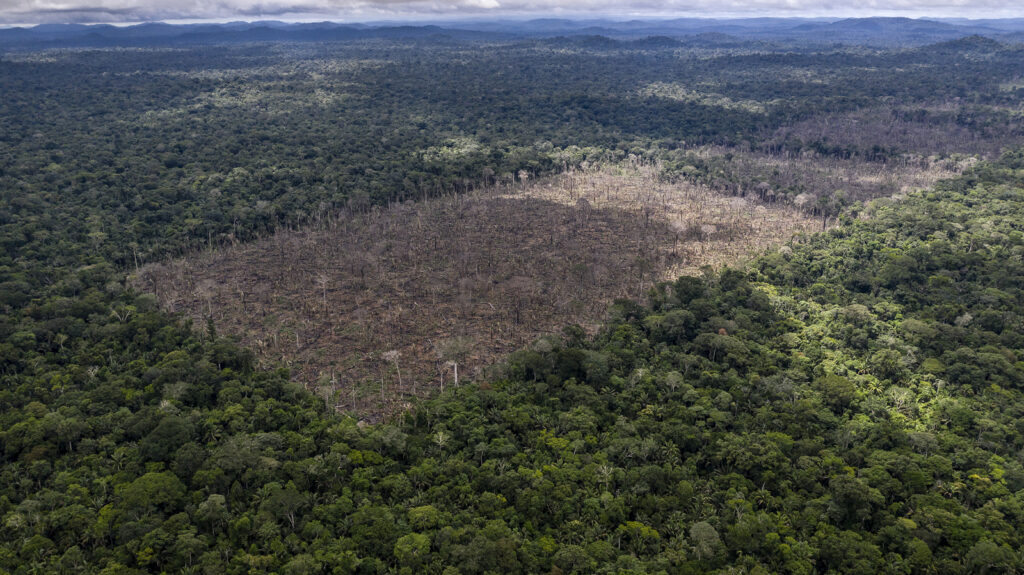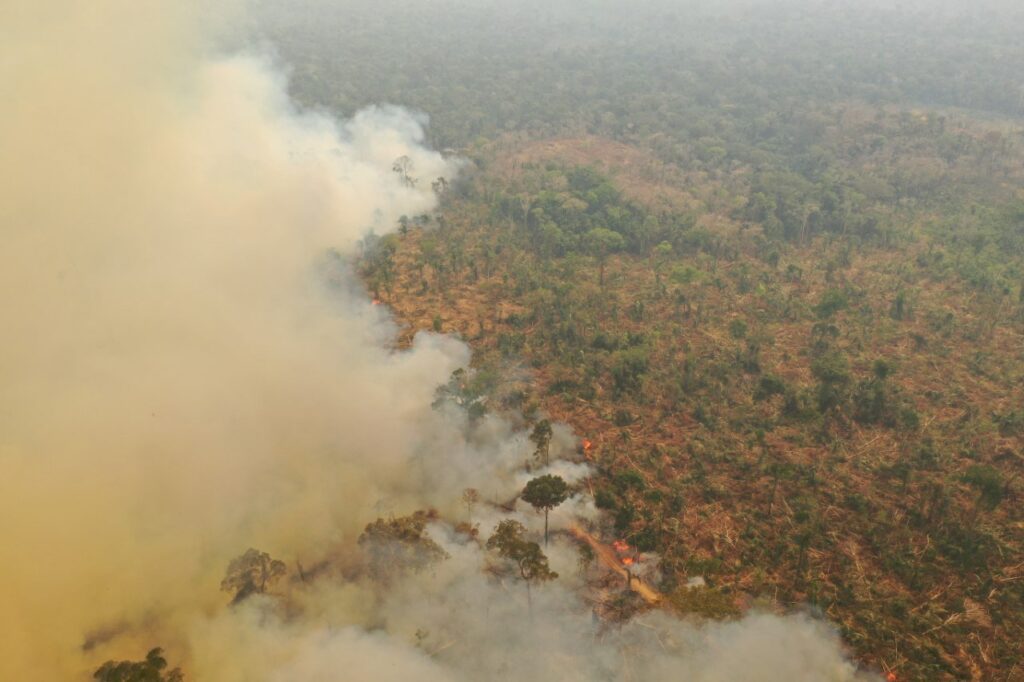The newly-elected European Parliament voted on Thursday to amend the EU deforestation regulation which already had been approved in April by the previous Parliament.
The amendments were adopted by 371 votes to 240 and 30 abstentions. Some amendments were withdrawn before the vote (1, 2, 8, 13, 14, 15). The previous deforestation law passed with an overwhelming majority of 552, with 44 against and 43 abstentions.
Thursday's vote follows the European Commission’s proposal to postpone the date from which the regulation applies in response to concerns raised by EU Member States, non-EU countries, traders and operators that they would not be able to fully comply with the rules if applied from the end of 2024. The EPP group (European People’s Party) proposed to postpone the implementation by two years but these amendments were withdrawn.
Large operators and traders will now be required to respect the regulation from 30 December 2025 as proposed by the Commission; micro- and small enterprises will have until 30 June 2026. This delay will help operators around the world to implement the rules smoothly without undermining the objectives of the law, the Parliament says.
Products impacted by the legislation include palm oil, beef, timber, coffee, cocoa, rubber, soy, and several derivatives such as chocolate, furniture, and print paper. Importers must ensure these products are traceable.
When the Commission proposed the extension of the implementation of the regulation, it said that it would not put into question the objectives or substance of the law, as agreed by the EU co-legislators.
No-risk countries
Thursday’s vote also adopted other amendments proposed by the political groups. Most of these are technical but more significantly, a new category of countries posing “no risk” of deforestation was added to the existing categories of “low”, “standard” and “high” risk.
It is up to the Commission to classify the countries exporting to the EU and assess the deforestation and forest degradation risk at the level of a country or parts thereof based on a range of criteria. Relevant products from no-risk countries should not be subject to strict due diligence and reporting conditions, the amendment states.
A list of "no-risk countries" has not yet been made. But the amendment sets out three conditions that such countries would have to meet:
- Forest area development has remained stable or has increased compared to 1990;
- They must have signed the Paris Agreement and international conventions on human rights and on preventing deforestation;
- Regulations on preventing deforestation and forest conservation at the national level must be strictly implemented, enforced, and monitored in full transparency.
“Adding exemptions and deleting due diligence requirements for products from so-called ‘no-risk’ countries opens up loopholes that invite further destruction of our precious forests and an erosion of the Green Deal itself,” commented French MEP Marie Toussaint, Greens/EFA’s shadow rapporteur on the regulation and founder of the International Alliance of Parliamentarians against ecocide.
As the Commission’s proposal was dealt with under the Parliament’s urgency procedure, and the amendment on “no-risk” countries was added, the legislative text will now have to go back to the Council and then endorsed again by both the Parliament and the Council before the changes can enter into force.

Illegal deforestation in the indigenous Uru-Eu-Wau-Wau territory. Credit: Marizilda Cruppe / WWF-UK
The Commission reaction
Asked to comment on the vote, a Commission spokesperson replied that the Commission will analyse the new text. The Commission proposed the extension to give stakeholders and companies more time to prepare themselves and did not foresee the other changes. If it does not accept the “no-risk” amendment, it has the option to withdraw the legislative proposal.
The renewed negotiations on the Mercosur free trade agreement – which aims to remove tariffs on most products traded between the EU and four countries in South America (Argentina, Brazil, Paraguay and Uruguay) – has been linked to the deforestation regulation. Farmers protested on Wednesday against the agreement, not so much because of deforestation concerns but rather over concerns about unfair competition.
Brazil in particular is a major exporter of beef and soybeans, both of which are major drivers of deforestation in the Amazon rainforests. By consuming “forest-risk commodities" such as beef and soy for animal feed, the EU is responsible for 10 % of global forest destruction, an EU study showed.
The Amazon rainforest has been destroyed by wildfires, arson and illegal logging. A recent article in The New York Times also highlighted evidence of chemicals being used to clear the forest for cattle breeding, whose beef will then be exported. A French study shows that in its present state, the Mercosur agreement will increase beef exports and result in 5-25% more deforestation in the region every year.
The Commission has not ruled out that the deforestation regulation will be taken into account in the on-going negotiations on the Mercosur agreement. It considers that the two issues are separate as the regulation is raised in bilateral negotiations with concerned countries.
Update: Before the vote, NGOs provided a list of changes in the forest areas between 1990 and 2020 in all countries and territories in the world. Among the Mercosur countries, the forest area decreased significantly in Argentina, Brazil and Paraguay; in Uruguay the area has more than doubled.
M. Apelblat
The Brussels Times

